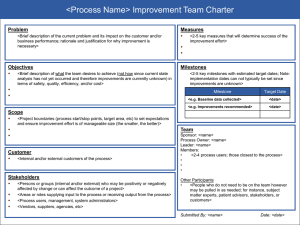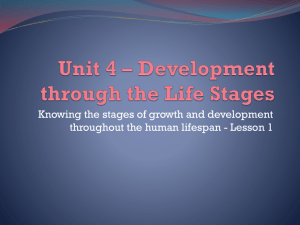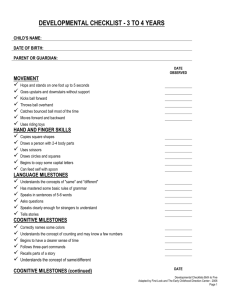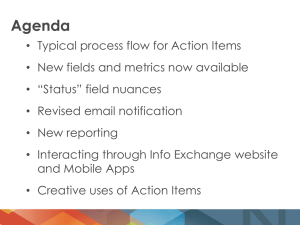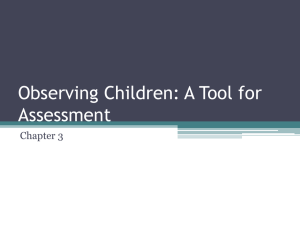Appreciating Developmental Milestones
advertisement
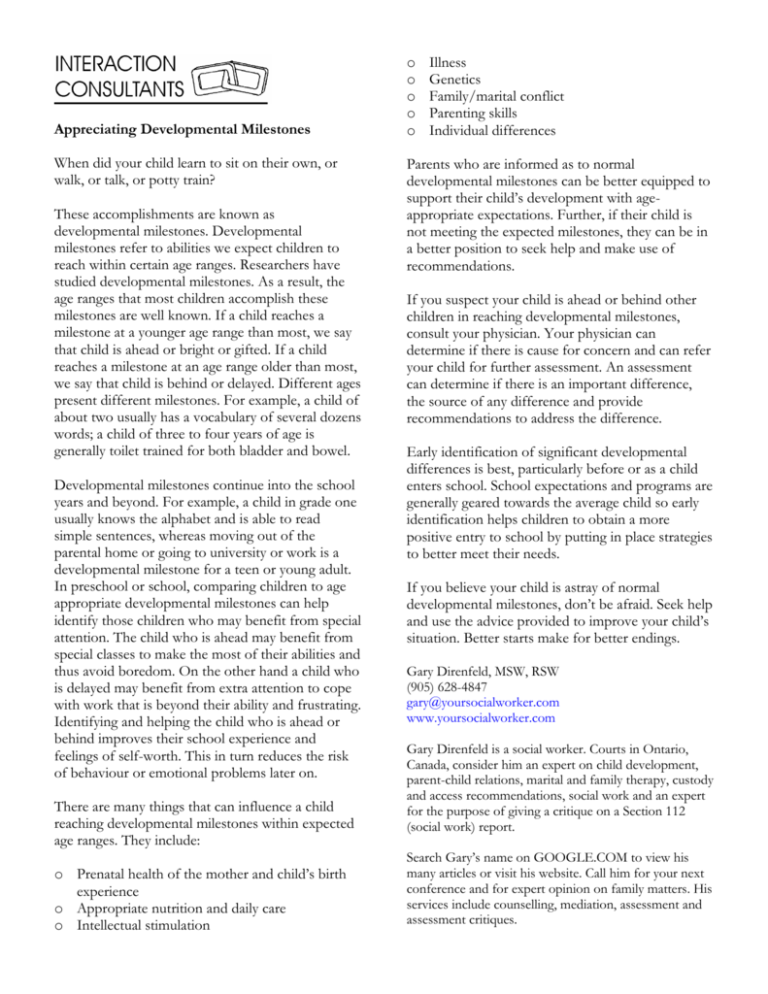
Appreciating Developmental Milestones When did your child learn to sit on their own, or walk, or talk, or potty train? These accomplishments are known as developmental milestones. Developmental milestones refer to abilities we expect children to reach within certain age ranges. Researchers have studied developmental milestones. As a result, the age ranges that most children accomplish these milestones are well known. If a child reaches a milestone at a younger age range than most, we say that child is ahead or bright or gifted. If a child reaches a milestone at an age range older than most, we say that child is behind or delayed. Different ages present different milestones. For example, a child of about two usually has a vocabulary of several dozens words; a child of three to four years of age is generally toilet trained for both bladder and bowel. Developmental milestones continue into the school years and beyond. For example, a child in grade one usually knows the alphabet and is able to read simple sentences, whereas moving out of the parental home or going to university or work is a developmental milestone for a teen or young adult. In preschool or school, comparing children to age appropriate developmental milestones can help identify those children who may benefit from special attention. The child who is ahead may benefit from special classes to make the most of their abilities and thus avoid boredom. On the other hand a child who is delayed may benefit from extra attention to cope with work that is beyond their ability and frustrating. Identifying and helping the child who is ahead or behind improves their school experience and feelings of self-worth. This in turn reduces the risk of behaviour or emotional problems later on. There are many things that can influence a child reaching developmental milestones within expected age ranges. They include: o Prenatal health of the mother and child’s birth experience o Appropriate nutrition and daily care o Intellectual stimulation o o o o o Illness Genetics Family/marital conflict Parenting skills Individual differences Parents who are informed as to normal developmental milestones can be better equipped to support their child’s development with ageappropriate expectations. Further, if their child is not meeting the expected milestones, they can be in a better position to seek help and make use of recommendations. If you suspect your child is ahead or behind other children in reaching developmental milestones, consult your physician. Your physician can determine if there is cause for concern and can refer your child for further assessment. An assessment can determine if there is an important difference, the source of any difference and provide recommendations to address the difference. Early identification of significant developmental differences is best, particularly before or as a child enters school. School expectations and programs are generally geared towards the average child so early identification helps children to obtain a more positive entry to school by putting in place strategies to better meet their needs. If you believe your child is astray of normal developmental milestones, don’t be afraid. Seek help and use the advice provided to improve your child’s situation. Better starts make for better endings. Gary Direnfeld, MSW, RSW (905) 628-4847 gary@yoursocialworker.com www.yoursocialworker.com Gary Direnfeld is a social worker. Courts in Ontario, Canada, consider him an expert on child development, parent-child relations, marital and family therapy, custody and access recommendations, social work and an expert for the purpose of giving a critique on a Section 112 (social work) report. Search Gary’s name on GOOGLE.COM to view his many articles or visit his website. Call him for your next conference and for expert opinion on family matters. His services include counselling, mediation, assessment and assessment critiques.
